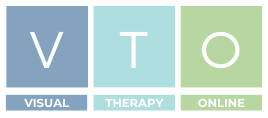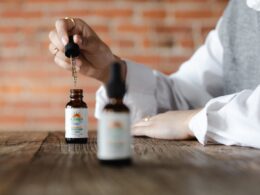Sustained sobriety is marked by navigating through numerous obstacles, and finding the most suitable program is crucial for a man’s progress toward substance use recovery. A Residential Addiction Treatment Program for Men offers tailored care along with the use of strategies designed to match a man’s life experiences. Also, compared to outpatient services, as these programs are residential, they provide a healing sanctuary away from distractions and temptations, offering 24/7 vigilant care and nurturance.
Importance of Gender-Specific Addiction Treatment
Every individual faces and overcomes addiction differently, and in particular, men face societal cultural issues and layers of emotional “Wounds,” let alone the treatment approach tailored as gender-based, allowing men to confront issues they grapple with more honestly at the hands of fellow men.
Working with men’s programs, from behavioral to mental health issues such as depression, PTSD, and countless others, helps facilitate trust, brotherhood, and responsible growth.
Major Highlights of Residential Programs Available for Men:
1. Complete Access to an Immersive Healing Space
Living on-site eliminates access to substances and reduces exposure to daily stressors. Providing healing control in this dimension makes recovery significantly more reachable in the long term.
2. Customized Care Strategies
Everyone’s recovery journey is unique. Clinical staff create tailored treatment plans following in-depth evaluations. These plans may include:
- Medical detox (if required)
- Individual therapy sessions
- Therapy groups
- Medications therapy
- Wellness activity programs
3. Peer Encouragement And Brotherhood
There is friendship in sharing group therapy with other men. It is easier to understand different narratives, offer support, and gain a fresh perspective on personal responsibility.
4. Cooccurring Condition Treatment
Several addiction-afflicted men also suffer from other mental health conditions simultaneously. Some of these issues, such as:
- Anxiety
- Depression
- Bipolar disorder
- Trauma and Post-Traumatic Stress Disorder
Are managed through psychiatric evaluation and integrated care provided in residential programs.
Men’s Residential Program Daily Schedule and Activities Calendar
Having a detailed daily schedule helps participants know what to expect, which alleviates anxiety and boosts confidence, especially regarding the process ahead. Participants are kept productive, as well, throughout the day, and in this case, along their recovery journey:
Time Activity
7:00 AM Wake-up and meditation
8:00 AM Breakfast
9:00 AM Group therapy
11:00 AM One-on-One Counseling
12:30 PM Lunch
2:00 PM Educational Workshop
4:00 PM Recreational Activities
6:00 PM Dinner
7:30 PM 12-Step Support Group Meeting
9:00 PM Reflection and prep for bed
Establishing structure facilitates the cultivation of positive habits, strengthening of mental clarity, and reintroduction to a supportive environment that promotes sobriety.
Main Approaches Used In Treatment Of Residents
Cognitive Behavioral Therapy (CBT)
Assists males in managing maladaptive ideas through CBT. It is useful in preventing relapse and managing triggers.
Dialectical Behavior Therapy (DBT)
DBT offers expertise in emotion regulation and interpersonal effectiveness. This approach provides resources for emotionally grappling with distress for men suffering from coexisting disorders.
EMDR (Eye Movement Desensitization and Reprocessing)
EMDR is excellent for trauma victims as it helps them process experiences that fuel substance use.
Adventure and Experiential Therapy
Men are often helped by programs that involve physical activities such as hiking, surfing, or participating in team sports that foster trust and emotional resilience.
Why Recovery in This Area is Convenient
Costa Mesa, California, is a calm yet lively place for healing. Being near nature and the Pacific coast promotes calmness and self-reflection. Opus Health and similar centers take advantage of this natural beauty to offer world-class facilities, expert clinical care, holistic treatment options, and state-of-the-art amenities.
Aspects to Consider in a Men’s Residential Addiction Rehabilitation Center
Different rehab facilities have various recovery programs. To review a clinic, pay attention to the following elements:
- Accreditation and licensing requirements: Check if the center complies with the minimum requirements of the industry.
- Staff credentials: Medical professionals and therapists must hold practicing licenses and have relevant experience.
- Post-treatment support provided: Recovery depends on support provided even after treatment.
- Integrative care options: Holistic methods, health and fitness, nutrition, mindfulness.
- Participation of relatives: Programs that provide relative participation are more effective.
Reasons Why Aftercare is Important in Relapse Prevention
The most daunting phase is reintegrating into social life after treatment. Comprehensive post-treatment supports include:
- Sober living accommodations
- Ongoing counseling sessions
- Employment training or placement services
- Alumni gatherings or mentorship.
These elements offer ongoing strategies to sustain sobriety and significantly reduce the chances of relapse.
Actual Accounts of Optimism
Countless individuals have been able to change their lives for the better through residential treatment programs.
Such testimonials reflect the profound impact that treatment, when carefully designed to be supportive, provides structure, and is male-centered, can offer.
Breaking the Stereotype
Men are often socially conditioned to suppress their feelings, push through suffering, and shun anything resembling weakness. These harmful narratives may postpone, or even negate, a man’s willingness to seek help. The decision to go to a residential addiction treatment center is not a sign of weakness; it is an act of self-preservation and growth.
Mental health, alongside addiction, should be treated with care and seriousness like any other physical health ailment. Actively choosing to seek help is a strong statement: I am worthy of healing.
The Initial Step
If you or someone you love is struggling with addiction, the time to take action is now. A rehab center for men is more than just detox; it is a place to fully heal, rebuild, and thrive.
Opus Health in Costa Mesa pairs compassionate, gentle guidance with structured therapies and a supportive brotherhood, empowering men to fully embrace life again and strive for an addiction-free future.
FAQs
Q: A residential addiction treatment program for men spans how long?
A: In most cases, these programs are designed for a duration of 30-90 days. That said, some people may need additional time due to their unique specific needs.
Q: Are family members allowed to visit during residential treatment?
A: Yes, most centers provide scheduled family visits and therapy sessions which aid in the healing journey.
Q: Is detox included in residential programs?
A: Numerous programs integrate medical detox in the early residential stages or collaborate closely with detox centers to provide seamless progression.
Q: Will my job be at risk if I go to rehab?
A: Treatment may fall under The Family And Medical Leave Act (FMLA) which may shield your job. As always, check this with HR and legal counsel.
Q: What happens after I leave the program?
A: Aftercare strategies guarantee that participants receive ongoing care through outpatient treatment, sober living housing, counseling, and supportive therapy to maintain distance from relapse.










